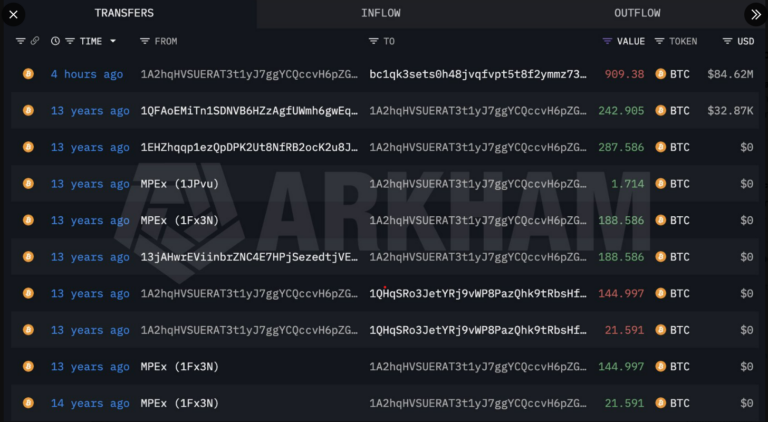
Back in 2020, about 120,000 Bitcoin, now worth around $15 billion, were mysteriously moved between wallets. Many believed it was a hack. But new reports say it wasn’t hacking at all.
According to crypto wallet firm OneKey, the problem came from a popular open-source Bitcoin tool called Libbitcoin Explorer (bx). This software was used to create wallets offline, but it contained a serious flaw: it didn’t generate private keys randomly enough.
Instead, the system used the computer’s clock as a seed to create wallet keys. That meant only a limited number of key combinations were possible. Anyone who knew roughly when a wallet was created could guess its private key, and take control of it.
Researchers found that over 220,000 Bitcoin addresses were affected. Shockingly, some people are still sending funds to these unsafe wallets today.
What’s most interesting is wallet addresses listed in the US government $14B (127K BTC) seizure previously were named in a Milky Sad report ~2 years ago for having vulnerable private keys and now the USG says they have custody of them. https://t.co/sHNwMXhLKH pic.twitter.com/icLWKU33kC
— ZachXBT (@zachxbt) October 14, 2025
The “Milk Sad” and LuBian Connection
This same weakness may explain earlier mysterious thefts, including the “Milk Sad” incident, where users lost their funds even though their computers weren’t connected to the internet.
The flaw also connects to another case involving LuBian, a major Bitcoin mining business. In 2020, LuBian lost 127,000 Bitcoin after attackers exploited a similar weak key system.
Now, U.S. authorities have confirmed that many of those coins were linked to Prince Group, a company accused of running online scams and forced-labor operations in Cambodia. The Department of Justice (DOJ) has seized those Bitcoin, making it one of the largest crypto confiscations ever.
NEW: Some of the 127,000 Bitcoin the U.S. government just seized from a Chinese scam were previously reported as having private key vulnerabilities
Now the U.S. government has them in custody
Is the U.S. government hacking Bitcoin wallets? 🤔
h/t @zachxbt pic.twitter.com/BY10yjUPmB
— Bitcoin Archive (@BTC_Archive) October 14, 2025
This discovery shows how a small coding mistake can expose billions of dollars. Weak random key generation doesn’t break Bitcoin itself , but it can break wallets built with poor code.
Experts now urge users to switch to hardware wallets or trusted apps that use true random number generators. It’s a strong reminder: in crypto, your security is only as strong as your code.
Disclaimer
The information provided by Altcoin Buzz is not financial advice. It is intended solely for educational, entertainment, and informational purposes. Any opinions or strategies shared are those of the writer/reviewers, and their risk tolerance may differ from yours. We are not liable for any losses you may incur from investments related to the information given. Bitcoin and other cryptocurrencies are high-risk assets; therefore, conduct thorough due diligence. Copyright Altcoin Buzz Pte Ltd.
The post US Authorities Hold 120K BTC Due to Key Flaw appeared first on Altcoin Buzz.

